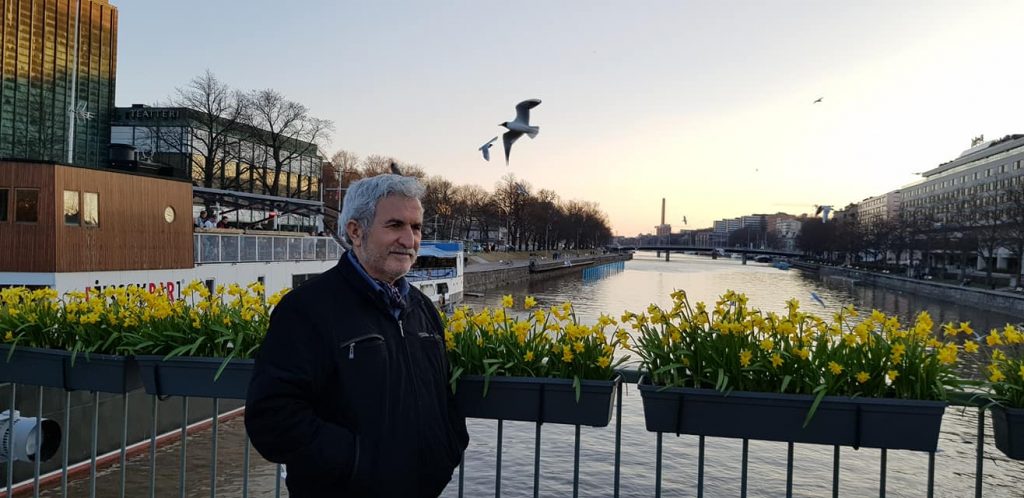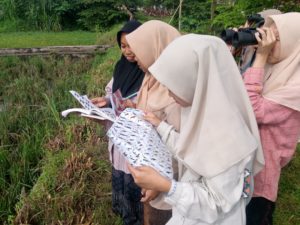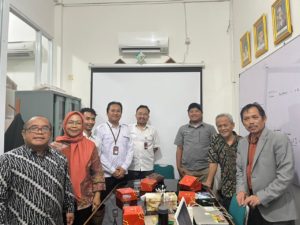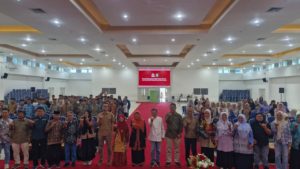PAS: Discuss your own environmental protection activism, especially any milestones that have been currently reached or that are about to come to fruition.
İÖ: As a background to answering this question, I want to share with you brief information about myself. I hope it may help you to put my answers and career in perspective. I was born in a village as 8th member of my family, 6 boys and two girls in 1960. My father, Mustafa, was a farmer and an illiterate. My mother Ayşe was a strong Kurdish woman, and an illiterate too. There was no school or mosque in our village. Therefore, I had to walk 2 miles to school at a nearby village, every day. Moreover, there was also no drinkable water in our village. We used to go with our donkeys to collect water every day. As a village boy, the awe and wonder of nature always attracted my curiosity. Since then, I have been a keen reader of the book of nature, trying to understand the human-nature relationship in the sense of what the Norwegian echo-philosopher Arne Naess calls “deep ecology”. (Naess, 1989)
My dissertation, The Ethical Dimension of Human Attitude Towards Nature (Published by Insan Publications: Istanbul, 2nd edition, 2008) has been regarded as the first dissertation by a Muslim scholar on environmental philosophy and ethics. The main objective of my dissertation was to explore the “philosophical and ethical dimensions of environmental problems”.
I began to teach, disseminate, and share my findings with my fellow Muslim scholars as well as others. Therefore, I have been working closely with environmentalist groups and activists in the Muslim world as well as in the West and East. I lectured at summer schools, seminars, and workshops in Indonesia, Malaysia, South Africa, Germany, the USA, Brazil, Saudi Arabia, Greece, Maldives, and Turkey. During these lectures and panels, I met and talked in person with (HE) Mr. Nelson Mandela, (HE) Mr. Dalai Lama, (HE) Mr. Mikhail Gorbachev and many other leading figures.
I was a member of the drafting team of the Islamic Declaration for Global Climate Change in August 2015. Because of my dedication to environmental awareness and active engagement with environmental NGOs and groups, I was appointed as a consultant to UNEP (United Nation Environmental Program), 2015-2016. I attended UN Environment Assembly in Nairobi in March 2019. During the Assembly, ISESCO (The Islamic Educational, Scientific and Cultural Organization, representing 57 Muslim countries) asked me to prepare a Strategy Document for the Islamic Conference of Environment Ministers. With Dr. Fachruddin M. Mangunjaya from Universitas Nasional, Jakarta, Indonesia, we prepared the document “How to activate Cultural and Religious Factors to Protect the Environment and Achieve Sustainable Development in the Islamic World”. It means, our strategy document will be used as a blueprint for sustainable development and climate change in Muslim countries in the future.
A new book Contemporary Thought in the Muslim World: Trends, Themes, and Issues by Carool Kersten (Routledge Press, 2019) presented me as “the most prominent Islamic environmentalist in Turkey for many years.”
Now, we have been working with the cooperation and guidance of UNEP on Al-Mizan: A Covenant for the Earth for a while. AL-MIZAN (‘Balance’ in English) is based on Surah Ar-Rahman (The Merciful) in which Allah Almighty describes the creation in its perfect balance: (Quran 55:1-9)
Al-Mizan presents an Islamic outlook of the environment in a bid to strengthen local, regional, and international actions that combat climate change and other threats to the planet. It is a global endeavour to engage Islamic scholars and Muslim institutions in the development and adoption of this Call. It examines the ethics behind the social patterning of human existence and enquires into how they could be brought to life today working in harmony with the heartbeat of the natural world.
These principles grew out of the foundations established by Prophet Muhammad into a range of rules and institutions that manifested an expression of life that was truly holistic. It was based on the Qur’an, and it could be distilled into three categories namely encouraging public good, forbidding wrong action, and acting in moderation at all times:
Let there be a community among you that calls for what is good, urges what is right and forbids what is wrong, they are the ones who have success” (3: 104).
I attended hundreds of meetings, in-service education programs for teachers, devised a syllabus on Religion and the Environment for Department of Theology at Ankara University, which is used by almost all Theology Departments, in Turkey. I also write regular stories on environment and climate change for Turkish newspapers.
PAS: Why is climate change and the seriousness of the danger that it poses to life, as we know it, not a hoax as some fundamentalist climate deniers claim?
İÖ: As a Muslim scholar I do believe that environmental problems in general and climate change, in particular, are frightening all humanity and the very existence of life on earth. Moreover, environmental problems are the root cause of deforestation erosion, floods, drought, hunger, racism, migration, international and domestic terror, human rights violations, human trafficking, and even nihilism. Considerable research findings by many scientists across the disciplines demonstrate that climate change is a reality and ‘very likely’ human-induced event.
According to recent reports by the Intergovernmental Panel on Climate Change (IPCC), leading climate scientists now feel confident that human activity is heating up the planet since the Industrial Revolution.
https://www.ipcc.ch/) Therefore, environmental problems and climate change mitigates adaptation and requires not only technical solutions, but also better insights in the understanding of relevant belief and identity systems, in which religion and culture play an important role. Human attitudes, convictions, and ultimately our consumption patterns will play an important role in our environment and climate adaptation and mitigation. Religion and culture, therefore, are the key determinant of individual convictions and a central marker of behaviour and community belonging.
Ecological resources, on the other hand, are at the core of every country’s long-term wealth. Today, the majority of countries in the world are running ecological deficits, using more resources than the ecosystems within their borders can regenerate. In some areas of the world, the implications of ecological deficits can be devastating, leading to resource loss, ecosystem collapse, debt, poverty, famine, and war.
Critical action is needed by the Muslims and others over the globe to address urgent, pending, and increasing environmental degradation, and related challenges of social and economic unsustainability in their respective countries. Thus, we can envisage a world in which every human-being enjoys sustained, inclusive, and sustainable economic growth and decent work for all. It will also secure the future of the Muslim world, which by 2050 will be more than 2 billion by regulating consumption and production patterns and use of all -natural resources – from air to land, from deserts to forests, from rivers, lakes, and aquifers to oceans and seas and from frozen tundra to expanding towns and cities – with a spirit of sustainability.






